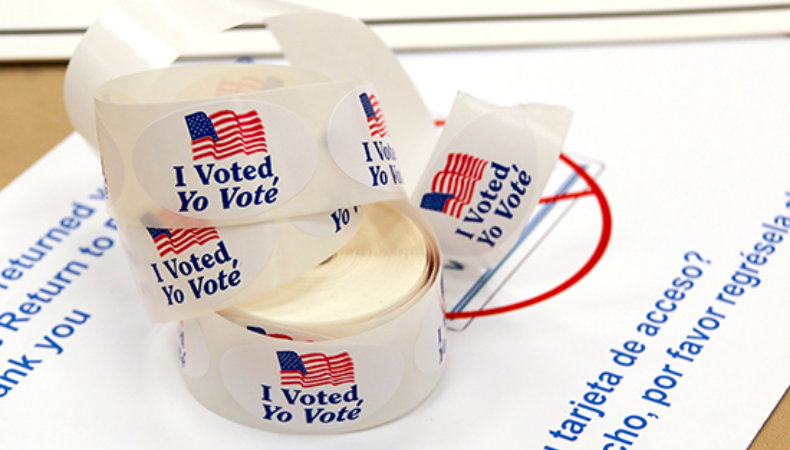The Role of Vice Presidential Picks in U.S. Elections: A Closer Look and Its Global Implications

American political circles are well aware that most voters focus more on the presidential candidate than on their running mate. Although they barely influence the outcome of the election, conventional wisdom suggests that vice presidential candidates could change popular opinion. Still, this popular thinking is under scrutiny in the 2024 presidential campaign as Democratic and Republican nominee respectively, former President Donald Trump, enters front stage.
Harris and Walz: a Strategic Alliance with Global Reversibility
Beyond simple strategic maneuvering for domestic politics, the pick of Minnesota Governor Tim Walz by Vice President Kamala Harris as running mate could have larger consequences on the international landscape. Harris’s staff is focused on significant voter demographics in swing states, whereas Walz’s Midwestern appeal is clearly a tremendous benefit. Voters who might usually feel alienated by the Democratic Party’s claimed coastal elitism will find connection in his avuncular approach, progressive message, and middle-class heartland heritage.
Apart from getting votes in the United States, this coalition tells global friends and enemies that the Democratic slate is committed to a program that combines progressive ideas with pragmatic government. Since the outcome of U.S. elections may impact diplomatic ties, world trade, and security, the United Arab Emirates (UAE) like many nations closely monitors U.S. elections.
The Case Regarding Vice President Choices
Although Harris’s choice is based on strategic thinking, it is debatable if a vice-presidential nomination really influences the outcome of an election. The history professor at American University Allan Lichtman cautions against overstretching Walz’s impact. Lichtman argues that there is little historical evidence to support the idea that a vice-presidential candidate significantly influences the vote, even though he has exactly predicted the outcomes of multiple presidential contests.
Lichtman’s questions arise from his belief that voters usually focus on the top of the ticket. Reflecting a similar viewpoint, Trump claimed that although the selection of a vice-presidential candidate generates some attention, its impact on the result of the election is finally negligible. The dynamics of the 2024 contest, which is characterized by unexpected occurrences and a strongly polarized electorate, could refute this notion, though.
Trump and Vance: An Other Plan
Ohio senator JD Vance, 40-year-old running partner of Trump, highlights his focus on maintaining his populist, anti-establishment platform. Although Trump personally downplays the importance of a vice-presidential candidacy, his selection of Vance—a far-right candidate—indicates a continuation of his confrontational political approach, so influencing U.S. relations with global allies including the UAE.
Important player in Middle Eastern geopolitics, the UAE owns U.S. foreign policy particularly in relation to trade, oil, and regional security. Past actions of the Trump administration, notably the Abraham Accords, which helped to mend relations between Israel and many Arab nations, particularly piqued UAE attention. As the 2024 election approaches, the UAE will be closely watching to see how the running mate choices and more general agendas of the candidates could affect these diplomatic achievements.
The Biden Factor: Unexpected Turn with World Impact
President Joe Biden changed the path of the 2024 contest by withdrawing from the campaign in July claiming problems with his age and health. Biden’s exit shook the Democratic slate just months before a contemporary presidential election, unprecedented late in nature. Harris’s departure cleared the way for her to take front stage as the Democratic frontrunner; her swift running mate pick demonstrated a commitment to winning over significant vote groups.
Biden’s leaving and Harris’s climb to the top of the ticket cast doubt on continuity in U.S. foreign policy for foreign observers—including the UAE. Generally welcomed by the UAE in line with the erratic character of the Trump years, the Biden administration had aimed to rebuild traditional relations and interact with international agencies. UAE authorities would especially be highly interested in Harris’s approach to foreign policy and how Walz would effect particularly in areas like defense cooperation and energy policy.
Historical background and modern reality
Traditionally, vice-presidential choices in American elections have not been crucial, argues Miller Center at the University of Virginia professor Barbara Perry. Perry also notes, though, that certain presidential campaigns decided on narrow margins and unexpected outcomes have deviated from past trends. U.S. politics is become increasingly contentious and unpredictable so any component of a candidate’s campaign, including their choice of running mate, might possibly tip the scales in a close contest.
The outcome of this election could have significant effects for the UAE, which largely depends on its relationship with the United States for security and economic stability. The way the Harris team promotes Walz as a middle class hero and a uniting agent mirrors problems voters in earlier elections could have related with. It also indicates, though, a probable shift in American foreign policy goals that would affect UAE strategic calculations.
The Changing American Election Scene and World Diplomacy
As the 2024 election is under progress, the impact of vice-presidential decisions on the outcome is still under debate. Though common wisdom argues that these decisions have little impact, the particular dynamics of the current race—characterized by uncertainty and a highly polarized electorate—may challenge this perspective. Like the Trump-Vance ticket, the Harris-Walz combination will be under close scrutiny as the election approaches since voters, analysts, and international observers are eager to find out whether the past rules still apply.
Keep On Reading
For the UAE, stakes are really outstanding. Everything from trade agreements to arms sales and Middle Eastern diplomatic relations will change depending on the outcome of the American election. Inspired by both her leadership and Walz’s impact, the Harris campaign’s foreign policy may either force the UAE to reconsider its ties and goals or enhance its strategic posture.
Final Thought: From Everywhere
Ultimately, the 2024 race could be a case study in the evolving relevance of vice-presidential candidates in U.S. politics, offering fresh ideas on how voters make their judgments and what actual aspects influence the outcome of a presidential contest. Moreover, the results of this election affect world diplomacy and international relations, therefore surpassing the United States. For countries like the UAE, the results might show either a continuation of current policies or a change that calls for a fresh approach to interact with the U.S. and its leadership.





